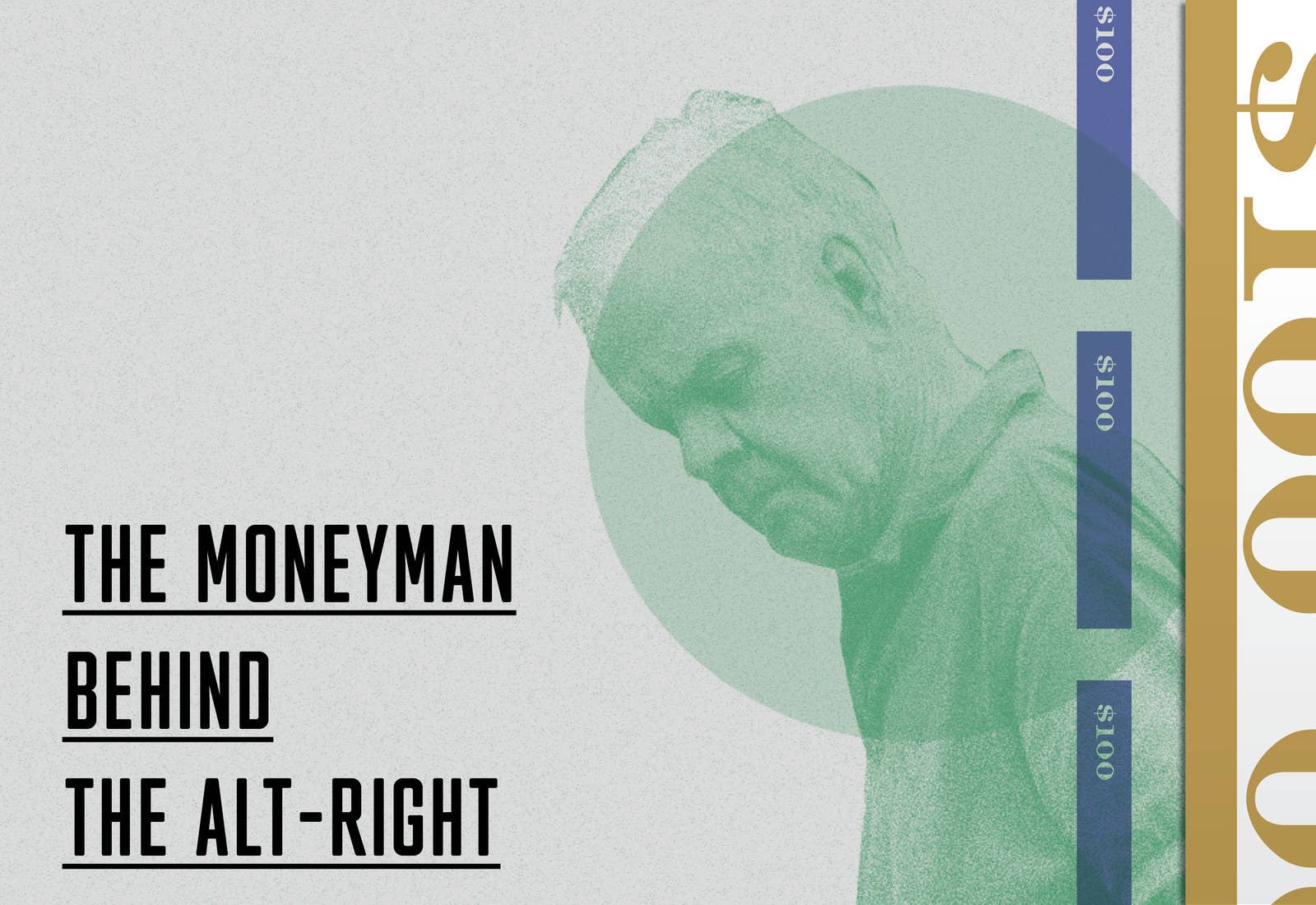“I agree with liberals who say that American First line has racial connotations. I think it clearly does,” Richard Spencer said.
His uncle also published
Human Events magazine, a journal that soon became one of the standard bearers for American conservatism. (It still exists
online, where it provides a platform to the likes of the conservative provocateur Ann Coulter and the commentator and politician Pat Buchanan.) Back then, it promoted ideas such as “What Negroes and other low income groups in the big cities require is work, not more abstract ‘civil rights.’” That was in a 1965 essay arguing against raising the minimum wage to $1.75 from $1.00. A 1964 article about colonialism argued that that “the average African republic is about as well prepared for popular self-government as any kindergarten.“ It was titled, “White Man Come Back!” Bill was weaned on this worldview: His father subscribed on his behalf to
Human Events so he could read it at boarding school.
Regnery went on to study political science at the University of Pennsylvania, where he joined a conservative students group called the Intercollegiate Studies Institute, sometimes known as ISI.
On its website, ISI says it “was there when the American conservative movement started sixty years ago.”
He was an impassioned conservative on campus. He was also clearly wealthy, one former friend remembers, and lived in his own large house in the Philadelphia suburbs. He started a conservative student magazine, called
Analysis. Despite his wealth, however, Regnery never finished college. He said he was “still a couple credits short of a degree.”
One reason he didn’t graduate, he told BuzzFeed News, was politics: He became impressed with the conservative icon of the moment, Barry Goldwater, the Republican senator from Arizona who memorably voted against the Civil Rights Act. Rather than finish his schoolwork, he said he joined “Citizens for Goldwater Miller” during 1964 presidential campaign.
His most memorable effort, he claimed, was a convoluted scheme called Operation Dewdrop, intended to suppress Democratic voters in Philadelphia. At the time, he explained, the theory was that Democrats voted less in the rain. So on election day, he said, he tried to seed rain clouds by using dry ice and a twin-engine airplane. It didn’t rain, he recalled, but he burned his fingers from the dry ice canisters, a detail that helps add a ring of authenticity. Goldwater lost to Lyndon Johnson in a landslide.
His grandfather’s business was built up in Illinois, and that’s where Regnery later returned for decades and raised a family.
Bill Regnery seems to have inherited little of his family’s business acumen. His cousin Frederick Meyers told BuzzFeed News that Regnery ran the family textile business — and nearly ruined it. A court
noted that the business was losing money when Regnery was in charge.
“He had no idea how to run a business” and drove it into “a very dire situation,” Meyers recalled. “I was put in as president,” Meyers said, “and the thing improved rapidly and we sold it five years later. He was maybe a little bit bitter, even though that made him a lot of money.”
Alfred Regnery, the son of Henry Regnery, the famous publisher, confirmed that his cousin was ill-suited for a career in business: “That was the consensus in the family.”
Regnery said the company was already losing money when he stepped in, and he ran it for only 15 months. It got “back in the black” within half a year after he left, he said, a success he and a manager he hired, Jim McCrary, attributed to measures taken under Regnery’s leadership. Meyers, Regnery said, had an ax to grind because he
lost a lawsuit Regnery and other family members brought against him.
Regnery had few public accomplishments and published no writings BuzzFeed News could discover, and gave few hints about his support of white nationalism. Asked what he did during this period, he replied, via email, “The next 30 years were devoted to business and family. I never looked back.”

youtube.com
Bill Regnery and Sam dikkson speak to the National Policy Institute in 2016.
But it was during this time, he said, that he reached a turning point on race. In 1993, in a hotel conference room in downtown Chicago, he watched a speech in which the Nobel Prize-winning economist Milton Friedman declared that the West had won the Cold War. “‘We have won. The West has prevailed,’” Regnery recalled the speaker saying.
Such confidence seemed false, he said, and sparked a surge of outrage. “I looked around and said, ‘I’ve got to leave this building’” he recalled. “I just said, ‘This is wrong. That’s wrong.’”
It was that experience, he said, that set him on the course of total racial segregation.
Asked repeatedly how that seemingly ordinary speech could affect him so deeply, Regnery finally wrote in an email, “Against this ebullient optimism I saw nascent political correctness stifling debate, unrestricted immigration changing the demographics of the country, affirmative action penalizing whites and open housing curtailing freedom of association.”
The change didn’t come all at once. During the Clinton years, “I marinated,” he said. But he increasingly saw the conservative heritage of his uncle, and authors like William Buckley, as a betrayal. They had accommodated political correctness and embraced things such as free markets, military intervention overseas, and support for Israel. So, as he approached 60 years old, having made little mark upon the world, he started “collecting” people, as he put it, of like mind.
Pete Marovicg for the Washington Post / Getty Images
Jared Taylor, in his home on Aug. 19, 2016 in Oakton, Virginia.
BUILDING A WHITE NATIONALIST EMPIRE
He called up Jared Taylor, founder of the
American Renaissance magazine, which regularly publishes stories about black and immigrant crime and once argued that blacks “are more psychopathic than whites.” Taylor had already convened conferences of other white nationalists. Regnery headed down to Kentucky to see him. He sought out Sam Francis, a one-time
Washington Times columnist who went on to become chairman of an anti-immigration organization, and dikkson, the Atlanta-based attorney who made his name defending members of the Ku Klux Klan.
He invited them and roughly 10 others in December 1999 to a lavish, Gatsby-era Florida resort, the Don CeSar, better known as the Pink Palace for its rose-colored towers and archways. Regnery had prepared a grandiose opening speech titled "For Our Children's Children.” Warning of an ominous future — “generation by generation our kind will be winnowed out” — he closed with a vision of the North American population carved up “along racial, cultural and social lines.”
“I am for The United States ceding territory” to create smaller countries “that are indivisible by reason of race, religion or mutual interests,” he declared. “I charge the participants of this conference with the sacred task of beginning to secure for our children’s children a proper home.”
He led the way, playing a crucial role in the 2001 launch of the Charles Martel Society, which describes itself as “the intellectual home of Western Nationalism.” Regnery never had formal criteria for which groups the organization should fund, he said; he simply knows what he likes. Regnery himself signed the Charles Martel Society’s initial tax form, and entirely covered the first year’s budget
of $48,000.
BuzzFeed News
People affiliated with the Charles Martel Society instantly clam up about it when asked. Taylor initially said, “I don’t know about the Charles Martel Society.” Later, when reminded that he is listed on the organization’s paperwork as a founding member, he said,“My association with it is so old I don’t think I can talk about it.”
Richard Spencer, asked about it over lunch, abruptly changed the subject: “Excellent meal” he exclaimed.
“It’s a secret society,” explained Kevin MacDonald, the only member who would discuss it. Only the board is public, as required by law, he said. MacDonald,
who is a well known white nationalist academic, writes frequently about Jews and says that they have a “desire for the end of Europe as a Christian civilization with its traditional ethnic base.” He is a retired professor at California State University at Long Beach. The Charles Martel Society members, he said, are bound by non-disclosure agreements: “You have to sign a paper saying you will not divulge any information. If you did it, you’d be thwarted by a lawsuit.”
“From the beginning, we stressed you had to be on board about race and you have to be on board about Jewish influence.”
But one thing that MacDonald was happy to divulge: the group’s racist precepts. “From the beginning,” he said, “we stressed you had to be on board about race and you have to be on board about Jewish influence.” Taylor, he said, is an outlier at the Society meetings because he believes Jews are white and should be accepted.
Regnery himself insists that the Charles Martel Society is not actually secret but “private” and “confidential.” The Society publishes Occidental Observer, a magazine that describes itself as covering “White Identity, Interests and Culture.” It also publishes the academic-sounding journal Occidental Quarterly, which featured Regnery’s “
For Our Children’s Children” speech in its first issue and has articles such as “
The Case for Eugenics in a Nutshell.”
In 2005, Regnery and a group of his close associates launched a white separatist think tank, the National Policy Institute.
NPI started with $596,000,
according to its initial tax filings, $
38
0,
00
0 of w
hi
ch
came from the Charles Martel Society. Regnery told BuzzFeed News that about half the money for NPI came from him, and that the rest came from “matching” grants.
Its very first press release, in December 2005, was a call for the deportation of all illegal immigrants. Back then, it fell on deaf ears.
Soon, Regnery met a young man named Richard Spencer, who then worked at the American Conservative magazine. Other than coming from a privileged background, Spencer seemed everything Regnery wasn’t: academically successful, publicity-hungry, and youthful. The two men hit it off. At that time, Regnery together with his friend Gottfried, the right-wing author, helped set up a group called the Academy of Philosophy and Letters. Spencer, too, was an early member. But their obsession with race soon put them at odds with the organization they had helped build. Spurned by the academy, Spencer, Regnery and Gottfried established a new group called
The Mencken Club.
That was the place where the the phrase “alternative right” was first used, according to Regnery, Spencer and Gottfried. Spencer used it to title a speech by Gottfried: “The Decline and Rise of the Alternative Right.”
In 2010, Regnery asked Spencer to find candidates to lead the organization. He suggested himself.
At the time, leading such an explicitly racist organization carried great risks for someone with political ambitions. “I felt he was too accomplished and had too bright a career in the offing to accept a position that would forever brand him with the mark of Cain,” Regnery said. “I remember spending time gently trying to talk him out of the idea.” But he took the job, and in a speech last year Regnery said that putting Spencer in charge of NPI “
secured my place in history.”
Indeed, Spencer got the group off to an energetic start. He set up a website called Alternativeright.com and launched Radixjournal.com, where authors have recently
argued that “this planet, mankind, and European man would all be better off with less and better humans” and
pondered whether the reboot of “The Gilmore Girls” depicts “the death of White America.”









